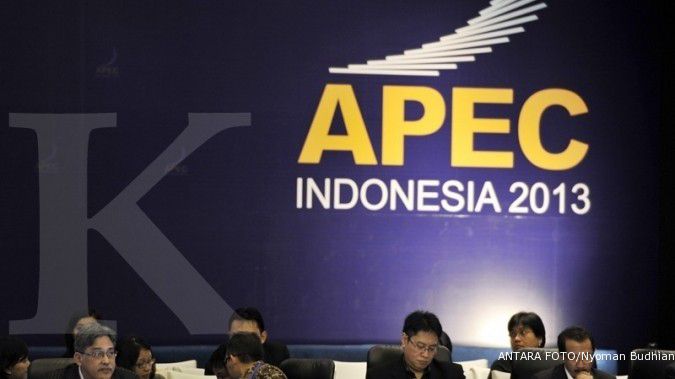JAKARTA. Indonesia's private sector foreign debt continued to increase in the last five years. Bank Indonesia (BI) continues to monitor the growth of private debt in order to guard Indonesia's macroeconomic stability
According to BI data, total private foreign debt in 2013 reached U.S. $ 140.51 billion. This figure is up 11.30 % compared with 2012. Most of that debt, U.S. $ 116.4 billion, came from non-bank private sector. This number is up significantly compared to 2012 which only amounted to U.S. $ 103.2 billion.
For private sector, in recent years, seeking debt from abroad is cheaper than taking credit from domestic banks. Chairman of the Indonesian Coal Association (APBI) Bob Kamandanu admitted, an increase in the mining sector debt is very large. However, the mining business receives revenue in U.S. dollar. Because of this, the mining sector debt is not susceptible to foreign exchange losses.
In addition, interest on foreign debt is also less expensive than at home. “Rate abroad 4 % -5 %, less than the 7% -8 % domestic rate, “ Bob, who is also the President Director of PT Delma Mining Corporation, said.
Deputy Chairman of the Indonesia Chamber of Commerce and Industry (Kadin) Natsir Mansyur said, businesses are forced to seek loan from abroad because the financing ability of domestic bank is still limited. “For mining operators, capital support can easily find from a bank in Singapore, Hong Kong or the United States, " Natsir said.
Indonesian Employers Association ( Apindo )Secretary General Suryadi Sasmita admitted , Singapore banks are very generous in giving loans to entrepreneurs from Indonesia. “With only 1% of interest rate," Suryadi said.
Moreover, overseas debt is free from the risk of currency fluctuations. So, when the exchange rate volatile as in the case, the employers are not concerned with foreign exchange losses. Employers have learned from the 1998 crisis. To reduce the exchange rate risk, for example, employers already has a contingency plan with the forex swap facility.
The government also concern with the surge in private foreign debt. Deputy Finance Minister Anny Ratnawati said, the government will keep a close watch on foreign private debt. It is because, in addition to its huge nominal, private debt has a different character than the government debt. “Government debt usually have reprofiling scheme. In private debt, the is no such a thing, " Anny said .
Reprofiling is important because the debtor can arrange to pay the debt under certain conditions . It can ease the burden of the debtor.
The government suggested private sector to reduce foreign debt by diversifying financing. For example, by issuing new shares or debt securities in the domestic capital market.
Firmanzah, Special Staff for the President in Economic and Development Affairs said, the increase in private debt is induced by the expansion of Indonesian companies. He argued that the debt surge is related to government policy to encourage downstream mining industry. This policy forces the mining industry to search foreign debt.
Last year, private external debt in the mining and quarrying sector raised U.S. $ 5.31 billion, the largest compared to the other. “It’s ok, but it needs to be controlled , " Firmanzah said.
BI’s Director of Communication Peter Jacobs said, private foreign debt is still in the safe category. According to BI data, most foreign private debt is long-term debt, which reached U.S. $ 99.8 billion, or 71.1 % of total private foreign debt.
Even so, the central bank will continue to be wary of private debt developments. BI has a mandatory reporting system that detects any private company’s debt.
/2012/10/01/979422918.jpg)














